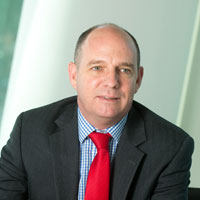Ever since the advent of fixed costs and more recently the 2021 Whiplash Reforms we have seen a steady increase in the number of additional injuries being claimed, the symptom of which are largely subjective in nature, all designed to inflate the level of damages such that a matter may exceed the threshold of the OIC and move to a cost bearing process.
Quite striking perhaps is the ever growing number of tinnitus claims and the appearance of ENT experts in relatively modest road traffic claims.
Previously found predominantly in NIHL claims, this sudden appearance of tinnitus in motor claims cannot be co-incidental? Absolutely not we say!
We read a lot about "fundamental dishonesty" determinations against claimants, but we have to ask ourselves, in circumstances in which the deliberate layering of claims by parties beyond the actual claimant is becoming the norm, is a "fundamental dishonesty" determination a win on its own? Will such an outcome deter behaviours and business models? Probably not. In low value claims how often does a FD finding even lead to a costs recovery? Not very often. So at best perhaps a pyrrhic victory.
Adopting a collaborative approach with many of our clients, DWF have made significant strides in challenging claims for tinnitus, not only successfully defending them, but actively progressing a wider disruption strategy.
As the ground breaking case of Khan v Aviva sets out, such cases are frequently run for the benefit of entities other than the claimants. Sometimes it is deliberate collusion by a combination of different entities including legal representatives, medical agencies, engineers and even medico-legal experts.
For some time now DWF has been leading the way with their FENCED ( Fraudulent Enabler Network - Claims Exaggeration Disruption) claims strategies – strategies focused on not only defending claims, but pro-actively and robustly disrupting behaviours by looking at those enablers behind the claims and challenging them directly, bringing them into the process.
In a DWF case involving tinnitus for Mulsanne Insurance DJ Clark observed "One can readily see why the Defendant has doubts. East Lancashire has gone from a position where claimants’ necks are weak to one where they suffer ringing in their ears following accidents. If one takes the midpoint of that change one finds it is very close to the introduction of the tariff system for whiplash cases. I have no doubt that this is in the forefront of the Defendant’s mind and of course it has to be explored properly"
And in another for Markerstudy, HHJ Gosnell said, "I feel a generic concern about tinnitus and the fact that this is the third case of tinnitus I have dealt with in the last three weeks. Prior to that, on the Bench for 25 years and prior to that as a specialist personal injury solicitor for 15 years, the only cases I have dealt with involving tinnitus involved noise induced hearing loss. It was extraordinary for someone who suffered a soft tissue injury in a minor road traffic accident to suffer from tinnitus. For reasons, which I am not going to speculate in this judgment, this has suddenly become very popular. "
The holistic and disruptive approach by DWF alongside their clients has not only seen the Courts reluctant to accept the likelihood of such injuries in minor road traffic accidents, but also very responsive to challenges to the credibility and reliability of the reports of certain ENT Experts.
In Safyan Sadique v Joseph Balfe and Aviva Insurance Limited, the Claimant alleged tinnitus was causing a significant affect upon all aspects of his life and tinnitus treatment in the sum of £5,760.00 was also claimed. The claim was dismissed pursuant to s57 of the Criminal Justice and Courts Act 2015 leading to savings of £50,000.00. The claimant was ordered to repay £14,619.76 in costs. Importantly also, however, we secured notable judicial comment;
The Judge found that the Claimant failed substantially to prove that any of the symptoms complained of were of the severity or had the effect upon him alleged. The Judge was satisfied that exaggeration was proven. The Judge commented: "Having considered the nature of the claim as presented, the evidence given by the Claimant and his presentation I regret that I find there is a clear divergence between the claim as presented and that proven which cannot be explained… I cannot find that the exaggeration it is anything but deliberate in light of the evidence". The Judge found that the ENT expert's opinion was "fundamentally flawed" in light of the Claimant's unreliability as a witness.
Another significant outcome was secured in Mr Asfak Abdullah Musa v Mr Edwin Obazee and Aviva Insurance Limited, where the Claimant failed to prove his claims for whiplash, tinnitus and tinnitus retraining therapy. The Judge awarded the Claimant £300.00 creating a saving of more than £25,000. He was not satisfied that the Claimant suffered anything more than a minor injury to the thumb lasting a few days, but went further and criticised the medical evidence of the ENT expert saying, "Even if I'd have found the Claimant to be credible I would not have found that tinnitus was caused by the accident. The report does not go anywhere near far enough to prove medical causation. Dr X diagnoses acoustic shock. There is no evidence before me of anything that could be described as acoustic shock".
In Shah Khan -v- Mr Xiao Bao Lin as part of ongoing collaboration, DWF secured a saving of £102,500.00. A claim deliberately layered with hearing loss, tinnitus and treatment. The Claimant had been involved in a head on collision, the force of impact causing the vehicle to spin and hit a lamp post. Medical evidence supported a 6 – 7 month claim for whiplash, together with hearing loss accelerated by 25 years, and moderate tinnitus. Medical records revealed that despite the hearing loss and moderate tinnitus claimed, there were no follow up appointments for hearing aids, therapy or treatment via the NHS. In other words, the Claimant was only pursuing his ENT symptoms within a medico-legal setting. Clear from Part replies was that the expert was acting as an advocate for the Claimant, failing to consider any range of opinion. As a result an application for independent ENT evidence was successful and at the examination with the Defendant's ENT expert the Claimant failed to mention any hearing loss. Moreover, the Defendant's audiologist viewed the audiogram results as dubious, determining there was no evidence of hearing loss, and that at best the tinnitus claimed was mild, not warranting treatment. The claim was discontinued and no payments made for the claims for hire, vehicle damage, hearing aids / masking devices and physiotherapy.
Usman Faiz Waraich v Aviva proceeded to trial and resulted in savings in excess of £46,000. Tinnitus was claimed, the Claimant's evidence was very poor and he faltered during cross examination. The trial was paused and a discontinuance agreed subject to the Claimant's legal representatives having also agreed to be joined as a party into the proceedings with an order for them to pay defence costs exceeding £10,000.
These successes highlight that while there has certainly been an increase in the number of tinnitus claims presented, they are rightly being met with the challenge they deserve. Equally, the Courts appear to be taking a fairly hard line approach to many of these claims which may well indicate a limited shelf life.
Adopting a wider disruption strategy is crucial. The goal is not simply a "fundamental dishonesty" finding, but is to respond robustly to those enabler parties behind the scene, to secure costs order against them, secure adverse judicial comment where possible, and to engage with the appropriate regulatory bodies with a view to ultimately bringing to an end these questionable behaviours. This wider disruption is necessary to ensure such claims such as these are extinguished as opposed to becoming the norm.
The success of this strategy is confirmed by the following comments from clients whose cases have been mentioned.
“We are passionate about defending our customers against increasing levels of cost layering. DWF are a fantastic collaborative partner in this area, providing unique insight and progressive ideas designed disrupt and deter some of the worst behaviour in the market” - Rachael Harkins, Head of Strategy Casualty Claims, Aviva
“The sharp practice of layering continues to plague the insurance industry. Aviva wanted to work with a strategic partner to tackle this sharp practice and DWF were excellent in their collaborative approach to this issue. DWF’s impressive technical knowledge and tenacity shone through at every stage of the investigations. The results have been incredibly impressive and demonstrates Aviva’s commitment to ensuring that the cost of insurance fraud is not passed on to our genuine customers.” - Pete Ward, Head of Claims Counter Fraud, Aviva
It’s critical that a hard-line is taken against potentially false claims. By challenging claims in Court rather than negotiating settlements the judiciary are alerted to the growing problem. This has proved successful and I’m sure will prove beneficial for the industry." - Sam Lee, Fraud Risk and Technical Manager, Markerstudy
"DWF have worked closely with us on enabler based layering. Their guidance has helped us challenge and defend these cases with great success. Throughout our partnership DWF have provided robust training, regularly held meetings to discuss progress, challenges, successes and future strategies to continue to robustly defend these matters, as a result of which we have seen a significant financial savings." - Tom Wilson, Head of Counter Fraud, Mulsanne















